There were several categories, notably design ones, where there were only one or two nominees. This disparity has raised questions about the level of access to theatrical education and training, as well as the representation and visibility of Latinx designers and technicians in the theatre industry at large and in theatrical training programs. It also helped the community identify an area of possible growth, where established artists could share their skills and act as mentors to emerging creators. As a way to increase visibility of all artists, the ALTAs also included categories that are largely left out of major awards ceremonies, like stage management, intimacy design, and other artistic specializations.
Race, ethnicity, and identity are often complex and extremely personal, and making room for that complexity in the context of an awards ceremony presented a challenge. Several of the artists nominated were mistakenly identified as Latinx, and they came forward to the core team to express the error. Other artists communicated discomfort or frustration at being identified as Latinx, based on their personal experiences with the term, or because they disagreed with the cultural and political context of the word and the frameworks of power and visibility that it is part of. ALTA responded on a case-by-case basis, relying on shared knowledge among the core leadership team and input from nominees and community members. Often, it was as simple as removing a nominee who said, “Hey, I’m not Latinx”; other times it was about sitting down with someone to listen to their concerns or to offer insight, assurance, or explanation. Intentionally centering the community in the process required an approach that prioritized a multiplicity of experiences and voices, as well as transparency about how the awards work.
For many, the night of the ALTAs was one of discovery, an introduction to artists and companies that often fall below the mainstream theatre radar. For instance, there are companies in Chicago that have been producing Spanish-language work and Latinx work for nearly as long as, or longer than, several of the most well-known theatre companies in the city have been in operation. Institutional and economic barriers that often inhibit people from seeing theatre in neighborhoods other than their own, or seeing enough theatre to vote comprehensively, was another challenge for the ALTAs. Geographic location, language, and access to institutional resources often played a part in how visible and recognizable certain productions and artists were.
[F]or so long, artists of color have been told that the work itself is the award. The ALTAs were our way of saying, “We see you.”
These patterns of unfamiliarity and erasure mirror larger existing social and political power divisions in Chicago. The night of the ALTAs was one of the only nights where Latinx artists from all over Chicago were in the same room together, despite the economic violence and racism that essentially segregates the city and is currently causing displacement for people of color and of low income in the south and west sides. Amidst all of this, the ALTA Awards were a strong reminder that showing up for each other’s work is a tangible and immediate opportunity to build and strengthen community ties, to combat the forces that keep the city divided, and to grow as artists and as people.
Part of ALTAs mission to further the Latinx theatre movement in Chicago is by being a nexus: a meeting place where people from different ethnic and racial backgrounds, schools of thought, life experiences, and artistic visions have an opportunity to support and empower each other. Though the ALTA Awards were always meant to be a night where Chicago theatremakers could strengthen or forge new connections with each other, it was also a night to think deeply about the differences that make up the wide breadth of practice, vision, and purpose in Latinx theatremaking in the city. Celebrating this diversity of thought and process was a tremendous experience, humbling and revelatory, and, as so many expressed at the ceremony, deeply affirming.

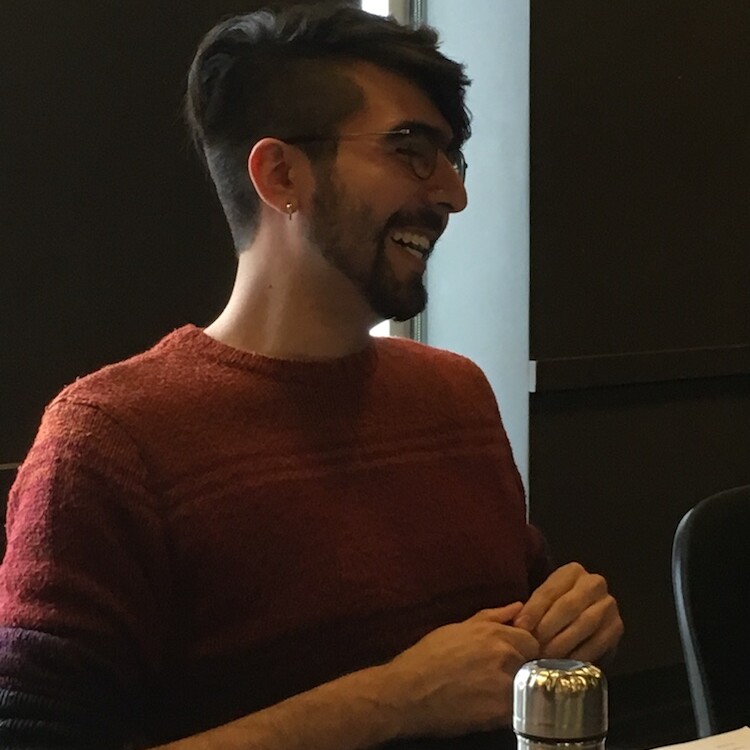
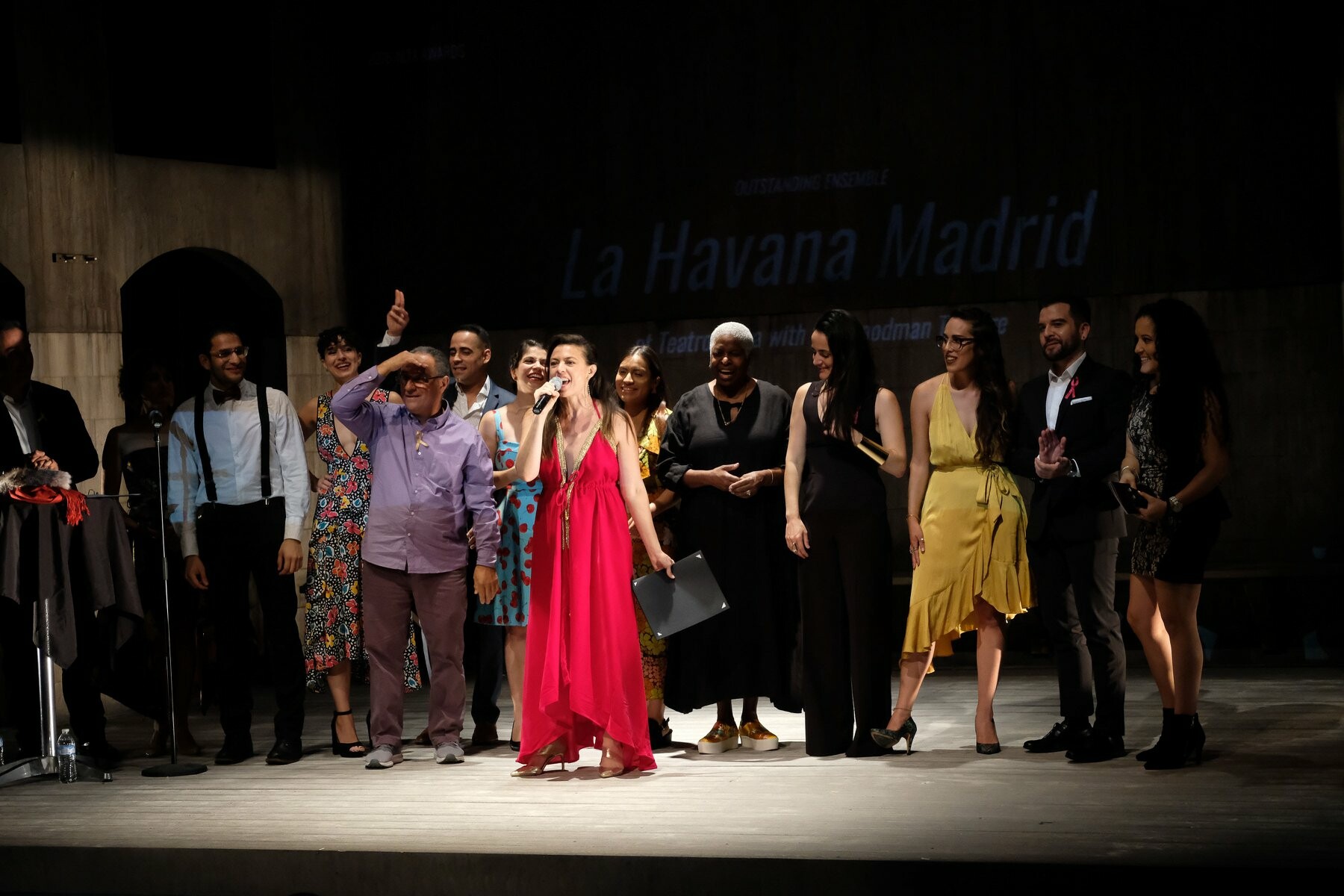
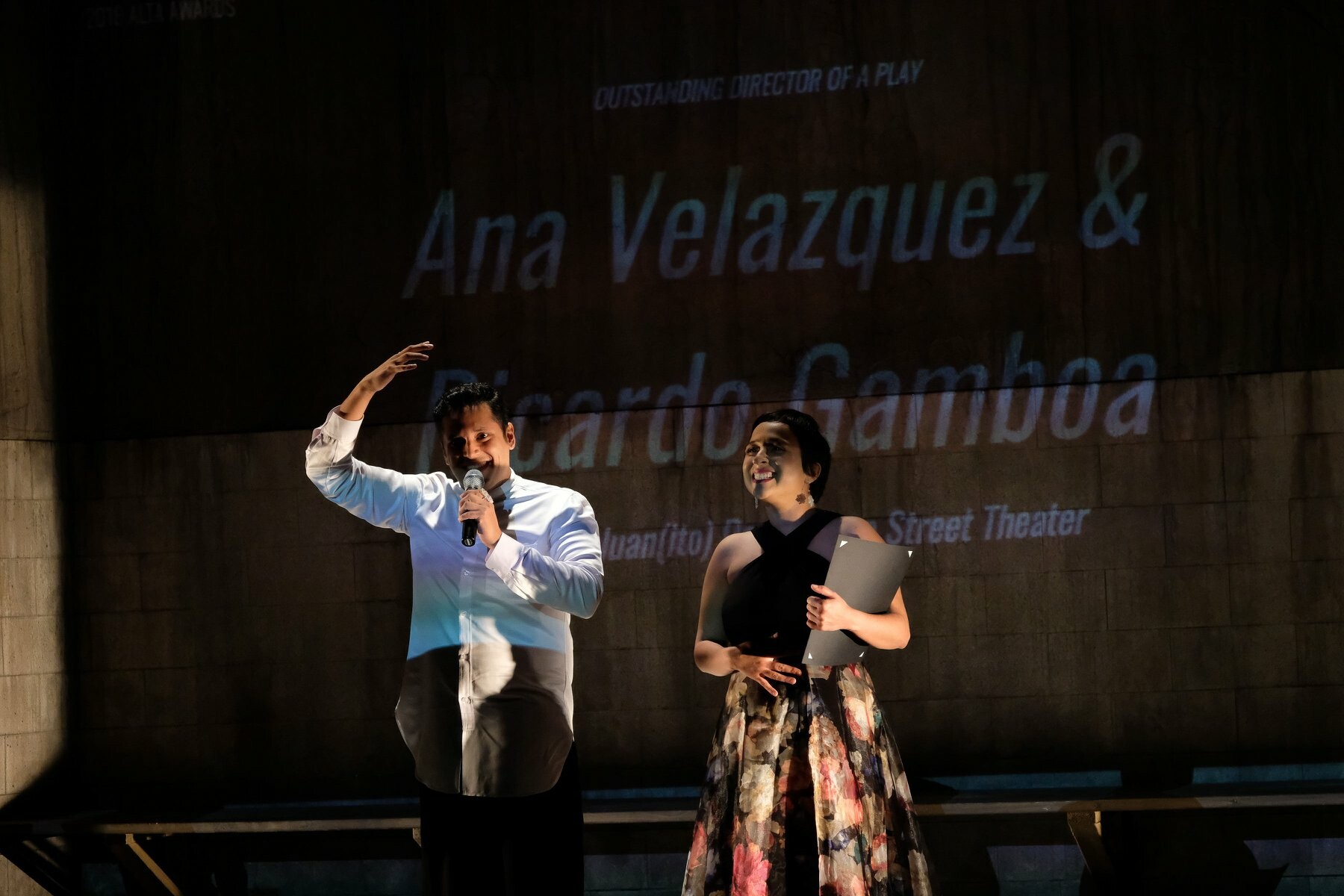
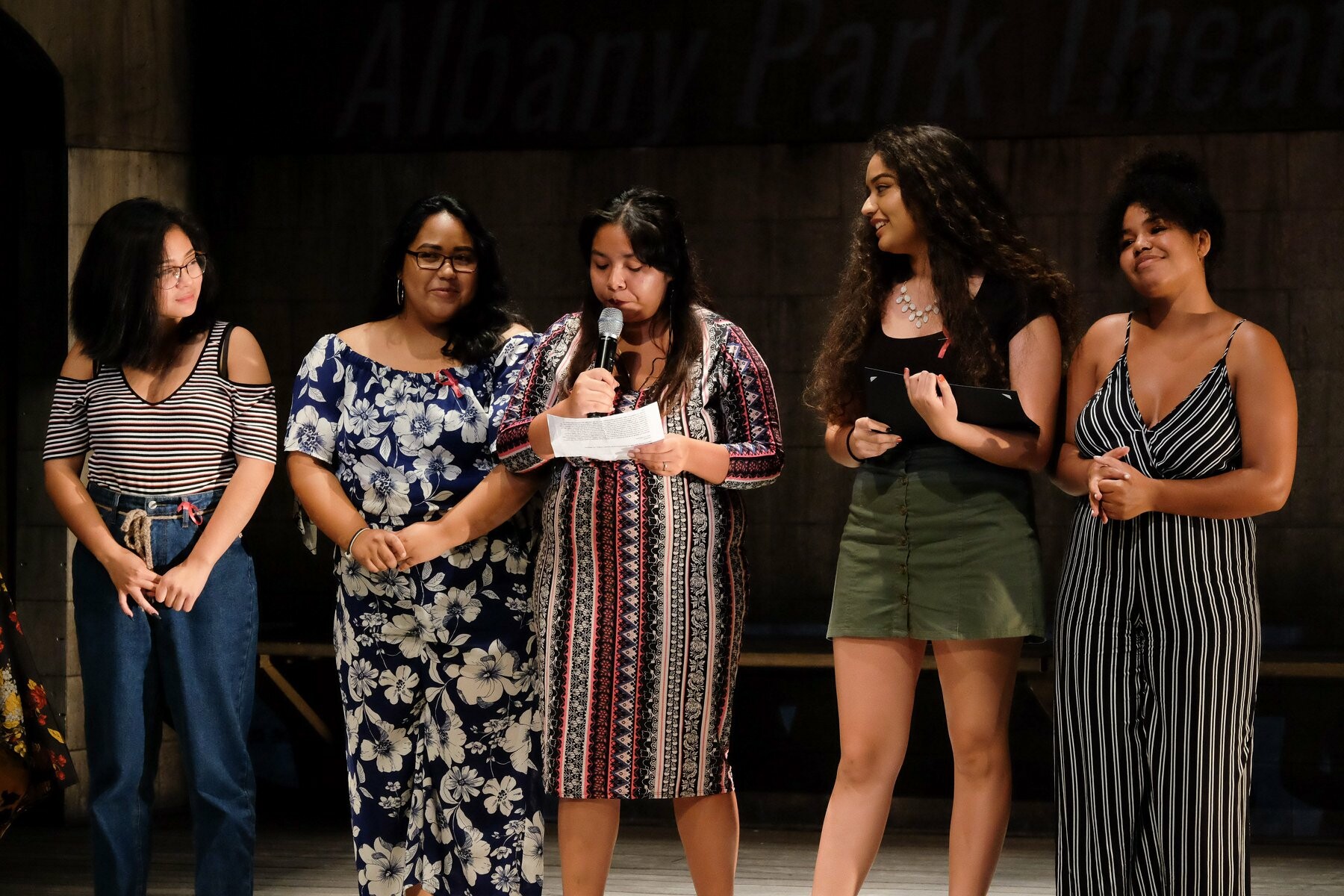
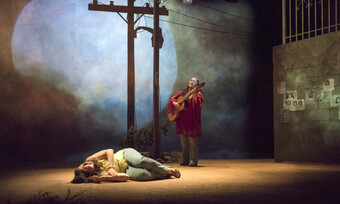

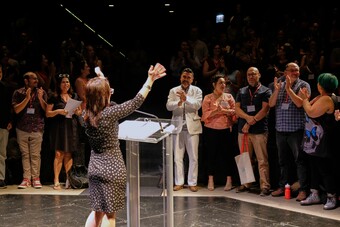

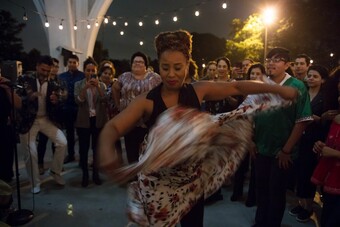

Comments
The article is just the start of the conversation—we want to know what you think about this subject, too! HowlRound is a space for knowledge-sharing, and we welcome spirited, thoughtful, and on-topic dialogue. Find our full comments policy here